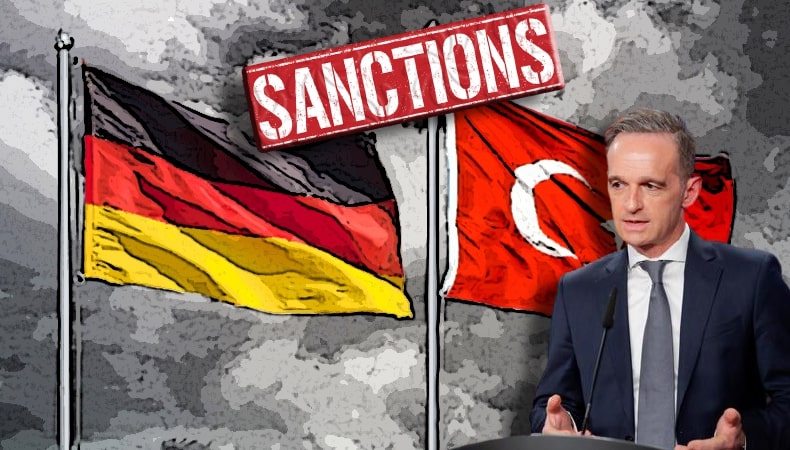European nations warn Turkey against sanctions as a consequence of its exit from Istanbul convention

Last week Turkey’s official gazette announced the country’s departure from Istanbul Convention which propagated measures to promote women safety from any form of violence or ill-treatment. The bloc nations believed that abandoning the international pact, which was signed by Ankara in 2011 along with 45 nations including EU members, could prove to be detrimental for EU-Turkey ties.
Germany was quick to remind Ankara that EU could resort to sanctions for its shunning the need to prevent violence against women, and forcefully shutting down the pro-Kurdish Peoples’ Democratic Party (HDP). Germany’s hardline approach against Turkey reflected what could be in-store for latter in upcoming EU summit, scheduled for later this week.
“There is de-escalation in the eastern Mediterranean, (but) the decision on the HDP or the pullout of the Istanbul Convention are certainly the wrong signals,” German Foreign Minister Heiko Maas said after holding meeting with his EU counterparts ahead of the Union summit. “We will therefore keep the prepared sanctions on the table, and we reserve the right to impose them should Turkey steer away from the constructive course which it has taken lately with regard to specific topics with the EU,” he added.
Luxembourg’s foreign minister, Jean Asselborn, who was also part of the EU foreign ministers’ meet held in Brussels, slammed Ankara’s move as regressive. He said, “This is a way back into the Middle Ages, this is not the way that we need to see to rebuild a normal relationship with Turkey.”
EU and Turkey have already been battling with myriad issues ranging from age-old refugee crisis, conflict between Athens and Ankara with regard to accessing resource-rich Eastern Mediterranean waters, to Turkey’s repeated appeal for inclusion in the bloc, which has been turned down on multiple occasions in the past.
With regard to wavering ties between EU and Turkey, a senior EU diplomat told Reuters: “Something very close to a military incident, or a dramatic change in Berlin’s approach.” Besides, EU foreign policy chief Josep Borrell referring to discussions over Turkey’s behaviour with the bloc said, “The mix will have to be taken into consideration by the council.”
In its justification to exit the treaty, the conservative faction of Turkey believed that the treaty was endangering family structures, encouraging divorces and even helping the LGBT community of gaining acceptance in society due its references towards equality. They believed that the treaty’s feature of gender equality was encouraging homosexuality as the principle prohibited discrimination on the basis of sexual orientation.
Many observers believed that move might reduce Turkey’s chance of admission into the European Union, which it has been eyeing for years. Besides, the move could also prove to be counterproductive towards Turkish President Recep Tayyip Erdogan’s efforts to brush up the country’s image by adopting ‘human rights action plan’ earlier this month.




